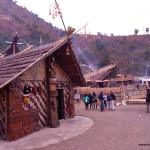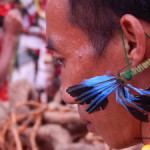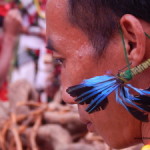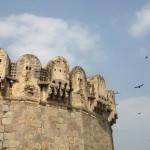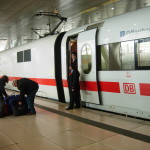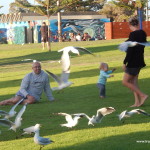The importance of a local contact
 I have written earlier about the importance of a local contact when you are travelling.
I have written earlier about the importance of a local contact when you are travelling.
Much more than helping you reduce costs in a number of ways – right from hosting you to giving you tips about budget travel locally – such a contact helps you have a very personalised experience of the place you are visiting.
This post is about how the idea of going to Hornbill Festival got into my head, and how, my chance meeting with the flatmate of a friend, made this a trip of many firsts for me.
I was in Delhi in February and this time, I was going there after three years and had tonnes of friends to catch up with. Among them was F, a Dutch girl I had hosted when she’d come to see the Durga Puja in Kolkata a couple of years ago. I stayed with F for one day in Delhi and that’s where I met K, her flatmate from the northeast Indian state of Nagaland. The three of us bonded over rum that night and K invited both of us to her home the next December to see Hornbill Festival. F couldn’t make it and I went alone.
K had suggested I fly in through Imphal, the capital of Nagaland’s neighbouring state Manipur and I booked my ticket that way.
Here’s how my local contact, in this case my friend K, made this trip very special.
K made me feel extra welcome: When K told me she’d pick me up from the Imphal airport, I’d assumed she lived close to the airport. But her house turned out a four-hour drive away! Let me make the situation absolutely clear – she doesn’t drive and so, she hired a driver and spent an entire day out – just so that I had no trouble reaching her place. And this was only the second time we were meeting.
During my travels both in India and abroad, when, time and again, I see the wonderful people like K going out of their way to help the little-known or completely unknown me, my faith in humanity deepens.
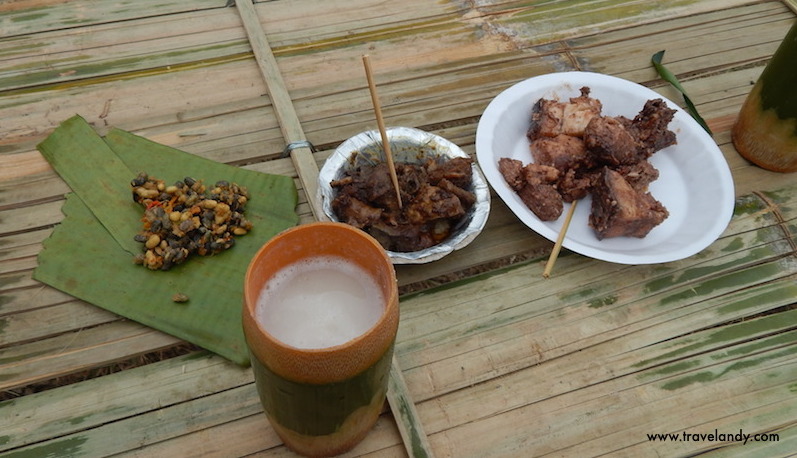
Authentic food: Being a local, K could differentiate between the authentic and the fare made according to the tastes of tourists. After a while, K had a hang of what I liked and what I didn’t and guided me to local food that she thought I’d enjoy. I can’t thank her enough 🙂 After checking out Hornbill Festival on the first day, we went to Kohima to see the Night Carnival, which is actually a lot of people selling all kinds of local food on the road. We went on a food walk and ate whatever looked good! We went home that night with extremely full stomachs.
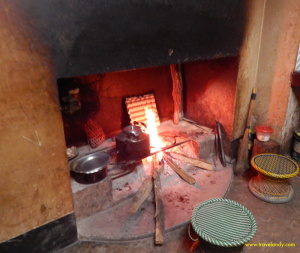
Staying in a Naga home: If you ask me, the best part of a Naga home is the kitchen. With a fire crackling at the hearth and a water kettle perpetually on the boil, this is certainly the cosiest and warmest room. Over the fire hung pieces of pork and beef left to smoke. We sat near the fire and chatted away over cups of steaming tea. K told me of the life in the hilly village of Punanamei on the border of Manipur and Nagaland, where her home was. K’s home ran on solar power and there’s little to do once the sun set. So, most people have dinner around 6pm and go to bed by eight. Not surprisingly, all the local people here are early risers and the day begins with the sun peeping out from behind the mountains. She also told me that almost all houses in Punanamei have kitchen gardens where they grow several kinds of vegetables. Squash seemed like a popular vegetable and I saw it in almost all the gardens.
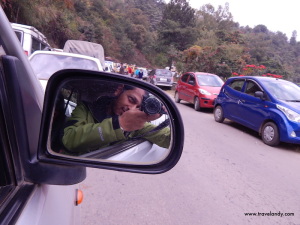
Driving on mountain roads: For someone like me who’d never driven on mountain roads, this was nothing less than an adventure sport! K had told me her driver wouldn’t be available on all the days and I had to drive. I’d come mentally prepared but I was very tensed in the beginning. It took some time before I gained in confidence and by the end of day, I was driving like quite the pro! It was exciting and exacting because you couldn’t let your attention waver even for one second, especially when you’re but a few feet away from a 300-metre sheer drop. It was awesome!
All these wonderful experiences would never have been possible if I didn’t know K, the local person. If K wasn’t in the picture and I were to visit Hornbill Festival, I would book a hotel in Kohima and take a taxi to the venue. I wouldn’t know which food was authentic and which was not, and whether a particular dish was supposed to taste that way or was it just badly prepared.
So, all I want to say is, thank you, K!

